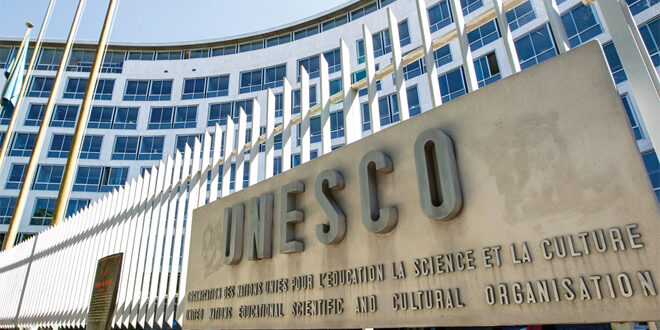UNESCO” Adopts a Resolution in Favor of Palestine Demanding the Implementation of An Action Plan for Urgent Assistance Program in the Gaza Strip
The Executive Council of the United Nations Educational, Scientific and Cultural Organization (UNESCO), at its 220th session, held today in Paris, France, adopted a special resolution on Palestine entitled “The impact and consequences of the current situation in the Gaza Strip with regard to all aspects of UNESCO’s mission”, following the adoption of two unanimous special resolutions namely: Occupied Palestine and Cultural and Educational Institutions.
The resolution, according to WAFA, calls for the implementation of an action plan for an urgent assistance program in the Gaza Strip, with more than 42,400 civilians martyred, more than 1.9 million people displaced and nearly 63 per cent of all buildings and 69 cultural heritage sites destroyed.
The Palestinian Ministry of Foreign Affairs affirmed that these resolutions are important to safeguard the rights of the Palestinian people in all areas of UNESCO’s work in view of the continuing genocide in the Gaza Strip and the targeting and destruction of Palestinian cultural and heritage structures.
The Ministry stressed that the adoption of these resolutions is evidence of the international community’s ability to fulfill its responsibilities to confront violations, as well as to monitor damage with a view to implementing an urgent plan of action to protect the Palestinian people, their history and cultural heritage, and to rebuild and develop the Gaza Strip in all relevant areas.
Foreign Affairs noted the resolution’s importance in establishing a special reconstruction fund, calling for immediate action to monitor the damage to cultural heritage and document the destruction of historical and religious sites. It also called on the international community to work towards the implementation of all UNESCO resolutions to preserve the cultural and historical legacy of the Palestinian Holy Land, including Jerusalem and its walls, and other Palestinian cities, and in the destroyed Gaza Strip.
Amal Farhat

